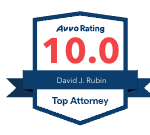Quick Summary Self-defense in California means using reasonable force to protect yourself, someone else, or your property from immediate harm. The force must match the threat faced, and your belief in the danger must be reasonable. In very specific situations, deadly force is permissible, but only under strict conditions. Special provisions like the Castle Doctrine
Read More
California Personal Injury & Criminal Defense Blog
California Felony Sentencing Guidelines: What You Need to Know
Quick Summary Understanding California’s felony sentencing guidelines is critical for individuals facing felony charges. Key aspects include the differences between determinate and indeterminate sentencing, the impact of aggravating and mitigating factors, and the role of sentencing hearings. Special considerations such as sentence enhancements, the Realignment Act, and the Three Strikes Law significantly influence sentencing outcomes.
Read More
How to Find and Contact an Inmate in California
Quick Summary To contact a resident in a California correctional facility you first have to identify the type of facility as each has distinct procedures. Use the California Department of Corrections and Rehabilitation (CDCR) Inmate Locator for state prisons and check sheriff’s department websites for local and county jails. To send mail to a resident,
Read More
Will My Employer be Notified Of My DUI?
Quick Summary A DUI charge can have a significant impact on your employment depending on your career. Receiving a DUI charge won’t automatically result in a notification sent to your employer, but you may need to notify your employer if you work in a profession requiring mandatory disclosure or if you work for a company
Read More
How To Choose A Criminal Defense Lawyer During Investigation
Nobody researches criminal defense attorneys when things are going well – it is only after you or someone you know is arrested, or you find out you are under criminal investigation that the thought even occurs to you. When you start looking for a good attorney it is usually because you need one…now. But selecting
Read More
 (619) 719-1087
(619) 719-1087


